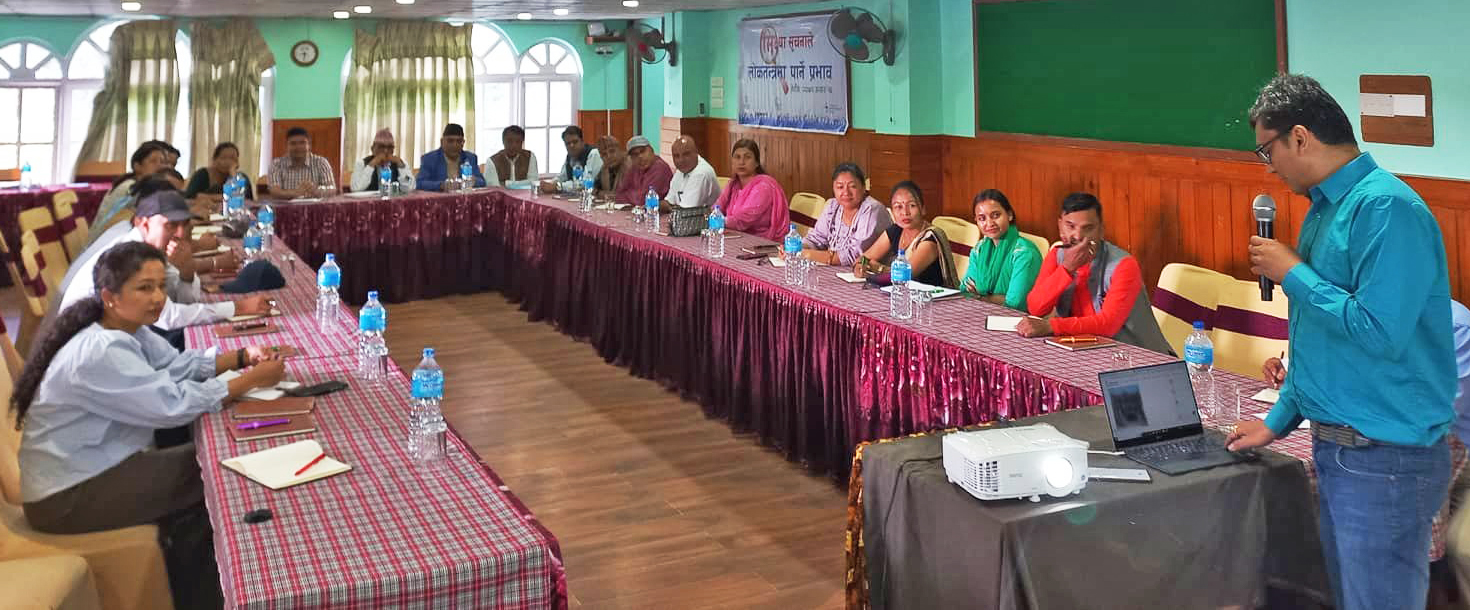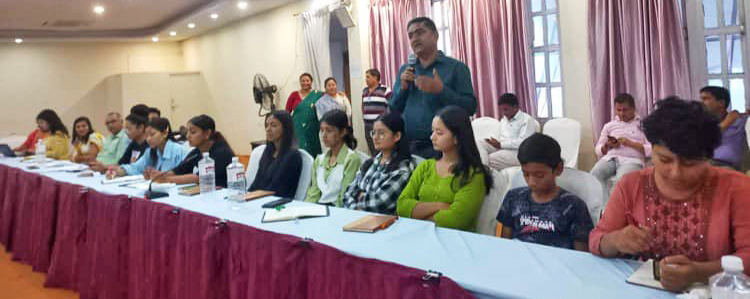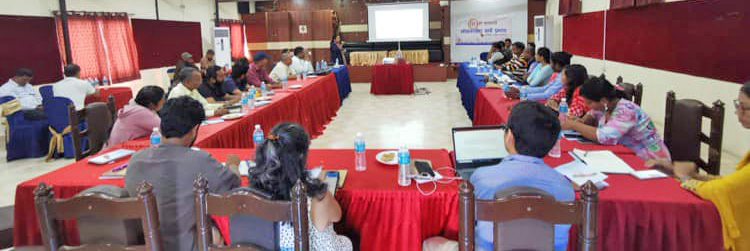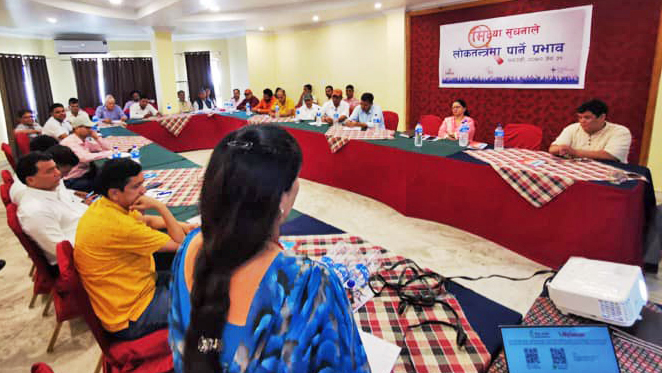CMR-Nepal with support from the International Republican Insitute (IRI) Nepal organized provincial roundtables on ‘Misinformation and Its Impact on Democracy’ in all 7 provinces of Nepal in June 2022.
Nepal had held Local Level Elections on May 13, 2022 during which CMR-Nepal monitored the misinformation on social media and media through it’s regular monitoring system of Nepal Fact Check and also with seven provincial monitors for a month leading to the election date. The objectives of the roundtables were to sensitize stakeholders on misinformation, share monitoring report, share misinformation experience, and discuss on mitigation strategies.
A total of 266 people, 27.5% of them females, representating government (11.7%), parliament (9.4%), civil society (34.6%), and media (44.4%) participated in the roundtables held in Butwal, Pokhara, Surkhet, Dhangadi, Janakpur, Biratnagar and Hetauda from June 11 to 30.

CMR-Nepal’s Tilak Pathak, Bhuwan KC and Umesh Shrestha were resource people during the roundtables that included sessions on introduction to misinformation, its impact on democracy, preliminary report presentation on provincial misinformation and media monitoring during local elections, and ways to counter misinformation.
In the discussions, the representatives from different political parties in the provinces were of the view that misinformation had weakened the pillars of democracy. They said politicians were mostly targeted during the election, and misleading information is abundant in the press and social media.
Even the provincial ministers expressed their concern about misinformation. They pointed out the tendency to spread disinformation in a planned manner to oppose or to favour. The participants were of the view that democracy could only be strengthened if the information integrity is maintained.
Some politicians said that if the media can give information/news to the public in full compliance with the journalist code of conduct and political personalities exchange information in a self-disciplined manner, there will be no need to make a law on control of false information.

Civil society activists were of the opinion that the misinformation was spread by elite groups and high profiles. And general people receive such information in a distorted form. They emphasized the need to take action against those involved in dissemination of disinformation and launch a campaign on media literacy.
Participant journalists were of the opinion that social media posed a significant threat to misinformation. They pointed out that the general people could not differentiate between the information they received from news-media and social media.
Journalists working in the province also pointed out the problem of receiving directives to cover news stories from the central office based on misinformation through social media. They even outline some of the underlying issues in journalism where journalists are guided by the crowd and viral information. The participants in the discussion series were of the common understanding that media literacy could be a means to tackle misinformation.

It emerged that misinformation is already experienced and/or conceived as a big problem at the provincial levels. The participants shared personal experiences with misinformation and generally stressed on the need of action to mitigate misinformation.
There is high level of interest in understanding misinformation among stakeholders as the participants, including concerned ministers as well as MPs and others stressed need to take misinformation orientation further down to the grassroot levels.
Based on suggestions during the roundtables and observations from resource persons, CMR-Nepal identified following action for future:
- Take misinformation orientation to stakeholders (especially government, policymakers, media, and journalists) as well as citizens (especially youth and vulnerable population).
- Development and wide distribution of resource materials on misinformation.
- Programs on media and information literary (MIL) for the public.
- Continuous misinformation monitoring at national, provincial and local levels.
- Fact-checking initiatives to become wider and reach more population.
- Support provincial government to formulate policies to mitigate misinformation.
